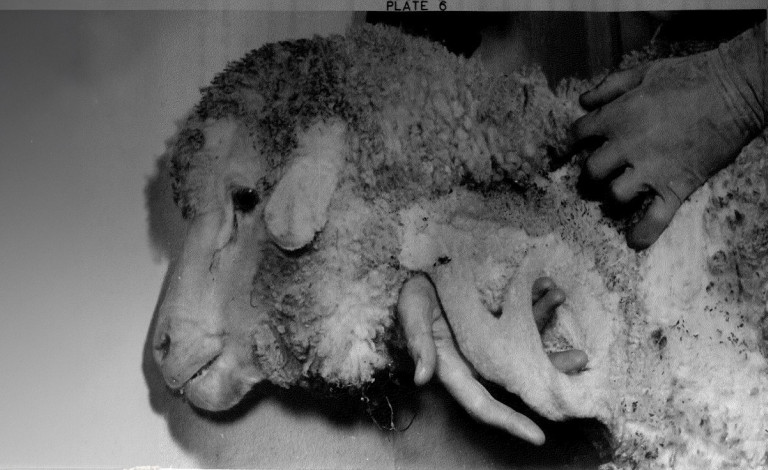Managing where town meets country
13 May 2022 | News
Researchers at Lincoln University’s Centre of Excellence – Designing Future Productive Landscapes have presented a range of spatial alternatives to address mounting urban vs rural land use tensions.
The Centre of Excellence, led by Professor Pablo Gregorini, focuses on developing, testing and implementing sustainable land use systems to facilitate landscape health, while also building economic, ecological, social and cultural wealth.
The quarterly Canterbury Mayoral Forum brings the 11 Canterbury local authorities together to identify key issues of mutual concern and to address them through collaboration, cooperation and coordination.
One of the most pressing issues facing communities throughout Canterbury and Aotearoa is how to effectively manage the rural/urban interface. Council policy seeks to balance the urban impetus for expansion with the rural demand to retain land for agricultural production.
Professor Pablo Gregorini says that how communities manage the zone where town meets country, or the peri-urban zone, is critically important to the function and value of the New Zealand economy, our settlements, our communities and ecology.
“Everyone knows that we are no longer in the era of business-as-usual.”
“Central and Local Government decision makers recognise that despite the urgent housing demand, and amid constant calls to release land for development from certain sectors of the community, our urban areas simply cannot continue sprawling into rural productive land indefinitely.”
Lincoln University approached the Canterbury Mayoral Forum to facilitate a workshop based on the research being carried out within the Centre of Excellence research theme of ‘Future Foodscapes for Health’, led by Dr Shannon Davis and Dr Stuart Charters, where the region’s mayors, councillors, planners and urban designers could collaborate with land-based scientists to address the rising tensions at the intersection between housing, whenua and food.
“Lincoln University, and specifically our Centre of Excellence for Designing Future Productive Landscapes, is ideally positioned to provide the independent, science-based expertise that council planners and decision makers need to ensure the appropriate development of our contested peri-urban landscapes,” said Professor Gregorini.
This particular research theme includes researchers from across the University, including from the School of Landscape Architecture, Applied Computing, Agriculture and Life Science, and also includes students undertaking research at both Masters and PhD level.
“In collaborating with planners, urban designers and decision makers, our researchers and students can bring fresh perspectives to the question of multi-functional land use and inspire national and local government to think differently about policy and design,” said Dr Charters.
The workshop section of the Mayoral Forum workshop, entitled The Peri-Urban Conundrum: farming in a contested landscape, was led by Dr Shannon Davis – Senior Lecturer in Landscape Planning at Lincoln University.
Dr Davis’s specialist research topic focuses on creating prosperous peri-urban zones in Aotearoa through innovative spatial design, where both people and food production can thrive.
“In particular, my work looks at how we can reintegrate food production back into the places where we live – which for the vast majority of New Zealanders is within urbanised settlements.
“Our cities strive to provide three of the four basic essentials for life: clean air, fresh water and adequate shelter, but for the last 100 years or so, many Western cities, including those in Aotearoa, have actively planned food production out of city landscapes, leaving us vulnerable to relying on long (and often global) food supply chains.
“Coupled with this concern from our urban communities, our rural landscapes, on which we rely so greatly for food and fibre production, are facing threats of land use change and fragmentation, soil loss and reverse sensitivity issues arising from the expansion of our cities out into their productive rural hinterlands. This is especially problematic for New Zealand, where our cities are almost all located on highly productive and versatile soil.
“The peri-urban zone is the crunch point where competing demands for land use intersect, as referenced in the National Policy Statements on Urban Development (gazetted in 2020), and Highly Productive Land (undergoing consultation). Councils have, on the one hand, been tasked with opening up more land for urban growth, while on the other hand they are also expected to ensure protection of versatile soils,” said Dr Davis.
Participants at the Mayoral Forum workshop identified key peri-urban land use issues facing their Council and constituents, prioritised those issues and considered potential solutions. The group looked at five different hypothetical scenarios for land use at the peri-urban nexus, as defined by Dr Davis and the Lincoln team:
- Business as usual – a mix of low and medium density housing continuing to expand into rural areas, along with associated infrastructure.
- Soil-oriented spatial planning – strict limitations placed on land use change based on soil quality. Poor soils actively targeted for higher density residential expansion.
- Transport-oriented development – centralising any new urban growth solely along existing transport corridors at higher urban densities. Although farmland is lost to urban land use change, it is focused along key transport corridors, seeing benefits through other environmental and economic outcomes.
- Dense island/urban farms – new high density housing developments situated around 100-hectare ‘urban farms’, spatially integrated into both the rural ‘farming’ landscape, as well as the urban ‘greenbelt’. Residential zones will be oriented around, and support, farming units.
- Hard boundary – containing all new development within the current urban limits, with only brown field development allowed, resulting in high density urban living, with the protection of surrounding high class soils and existing farming enterprise.
Dr Davis said the workshop was enormously successful, but more work was needed.
“Every council involved in this collaboration is grappling with the peri-urban conundrum, just at different scales, and they all recognised that there is a need for more research in this area to inform and support those who have to make fit-for-future decisions now.
“Lincoln University is uniquely placed to offer innovation in this space, with our researchers and student teams able to bring fresh, unrestricted and independent thinking to the table supporting Territorial Authorities, Mana Whenua, communities and those charged with ultimately designing and implementing land use change.”
For media enquiries or to arrange an interview email media@lincoln.ac.nz or phone 03 325 3827.


